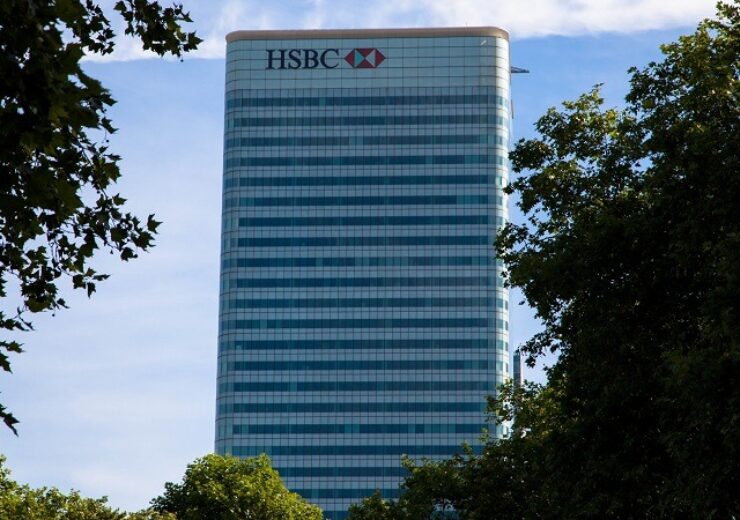HSBC said that the profit before tax was due to higher expected credit losses and other credit impairment charges (ECL) of $1.18bn and also lower revenue

HSBC headquarters, London. (Credit: HSBC Group)
HSBC said that its reported profit before tax for the first quarter of 2020 (Q1 2020) was down by 48% at $3.22bn, compared to $6.21bn it made in the same quarter of 2019 (Q1 2019).
The diluted earnings per share in Q1 2020 that ended 31 March is $0.09 compared to $0.21 reported in the corresponding quarter in the previous year.
The bank said that the drop in its Q1 2020 profit before tax was due to higher expected credit losses and other credit impairment charges (ECL) of $1.18bn and also lower revenue. Furthermore, the reduction mainly reflected the global impact of the coronavirus outbreak and low oil prices, said the multinational banking group.
HSBC’s reported revenue for Q1 2020 was down by 5% at $13.68bn from $14.42bn made in Q1 2019. The bank said that this was due to the unfavourable market impacts in life insurance manufacturing and adverse valuation adjustments in its global banking and markets (GB&M) business, which offset a resilient revenue performance, especially in Asia, global markets, retail banking and global private banking (GPB).
The bank’s reported operating expenses dropped 5% at $7.85bn and adjusted operating expenses were down 3% at $7.68bn, in spite of continued investment, because of lower performance-related pay and reduced discretionary costs.
In GB&M, the adjusted profit before tax in the reported quarter is $823m compared to $1.61bn in Q1 2019.
The bank’s retail banking and wealth management business reported $357m in adjusted profit before tax in Q1 2020 compared to $2.19bn made in the same quarter the year before.
In commercial banking, the first-quarter adjusted profit before tax is $611m compared to $1.99bn made in Q1 2019.
HSBC chief executive comments on the Q1 2020 results
HSBC group chief executive Noel Quinn said: “The economic impact of the Covid-19 pandemic on our customers has been the main driver of the change in our financial performance since the turn of the year. The resultant increase in expected credit losses in the first quarter contributed to a material fall in reported profit before tax compared with the same period last year.”
